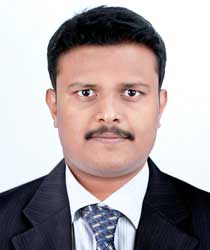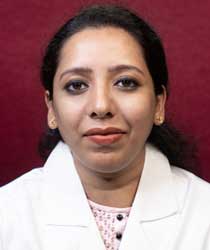PHARMACOLOGY
-
-

Prof. Dr. Jacob Jesurun R. S.
- Professor & HOD
-
Read more..
-

Dr. Sara Kurien Kodiattu
- Assistant Professor
-
Read more..
-

Dr. Swetha Reeba Mathews
- Assistant Professor
-
Read more..
-

Mission and Educational Objectives
The UG program in Pharmacology at Believers Church Medical College aims to provide students with a comprehensive understanding of the principles of pharmacology and therapeutics, emphasizing the safe and effective use of medications in patient care.
Curriculum
- Comprehensive curriculum covering core pharmacological sciences, principles of drug action, clinical pharmacology, and therapeutics.
- Integration with other medical disciplines to ensure a holistic understanding of pharmacotherapy in patient care.
Clinical Training
- Practical clinical training in medicine wards, outpatient clinics, and emergency departments to observe and understand drug therapy in various medical conditions.
- Exposure to a wide range of medical conditions and drug classes, including infectious diseases, cardiovascular disorders, respiratory diseases, and endocrine disorders.
Faculty Expertise
- The department is staffed with experienced and renowned pharmacologists who specialize in various aspects of pharmacology and therapeutics.
- Faculty members actively engage in clinical practice, research, and academic activities related to pharmacology.
Technology Integration
- Utilization of modern medical technology, including pharmacokinetic modeling, computer-based drug information resources, and electronic prescribing systems.
- Training in the use of digital tools for pharmacological research, medication management, and evidence-based practice.
Critical Thinking and Problem-Solving
- Emphasis on developing critical thinking skills for evaluating drug efficacy, safety, and appropriate therapeutic choices in clinical scenarios.
- Case-based learning and clinical discussions to enhance problem-solving abilities in pharmacotherapy.
Patient-Centered Care
- Focus on understanding patient-specific factors influencing drug therapy, including pharmacogenomics, age, comorbidities, and cultural considerations.
- Training in ethical prescribing practices, patient counseling, and shared decision-making in medication management.
Postgraduate (PG) Program
Research Opportunities
- Encouragement for PG residents to engage in pharmacological research projects, including drug development, clinical trials, and drug safety assessments.
- Collaboration with faculty on ongoing medical research initiatives aimed at advancing pharmacotherapy.
Continuing Medical Education
- Regular participation in national and international pharmacology conferences, workshops, and seminars.
- Staying updated on the latest advancements in pharmacological science, drug therapy, and medication management.
Teaching and Training
- Involvement in undergraduate medical education, providing teaching and mentorship to UG students in pharmacology.
- Training in medical education principles and effective teaching methodologies specific to pharmacological sciences.
Patient Care Leadership
- Training in leadership and management skills for effective coordination of pharmacotherapy services within healthcare settings.
- Involvement in multidisciplinary healthcare teams for comprehensive medication management and patient safety.




